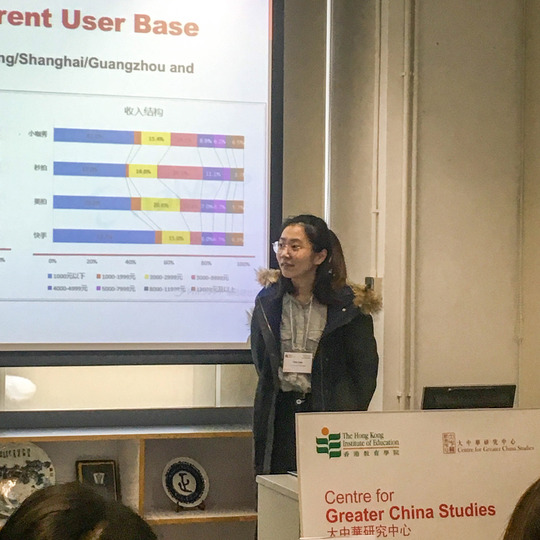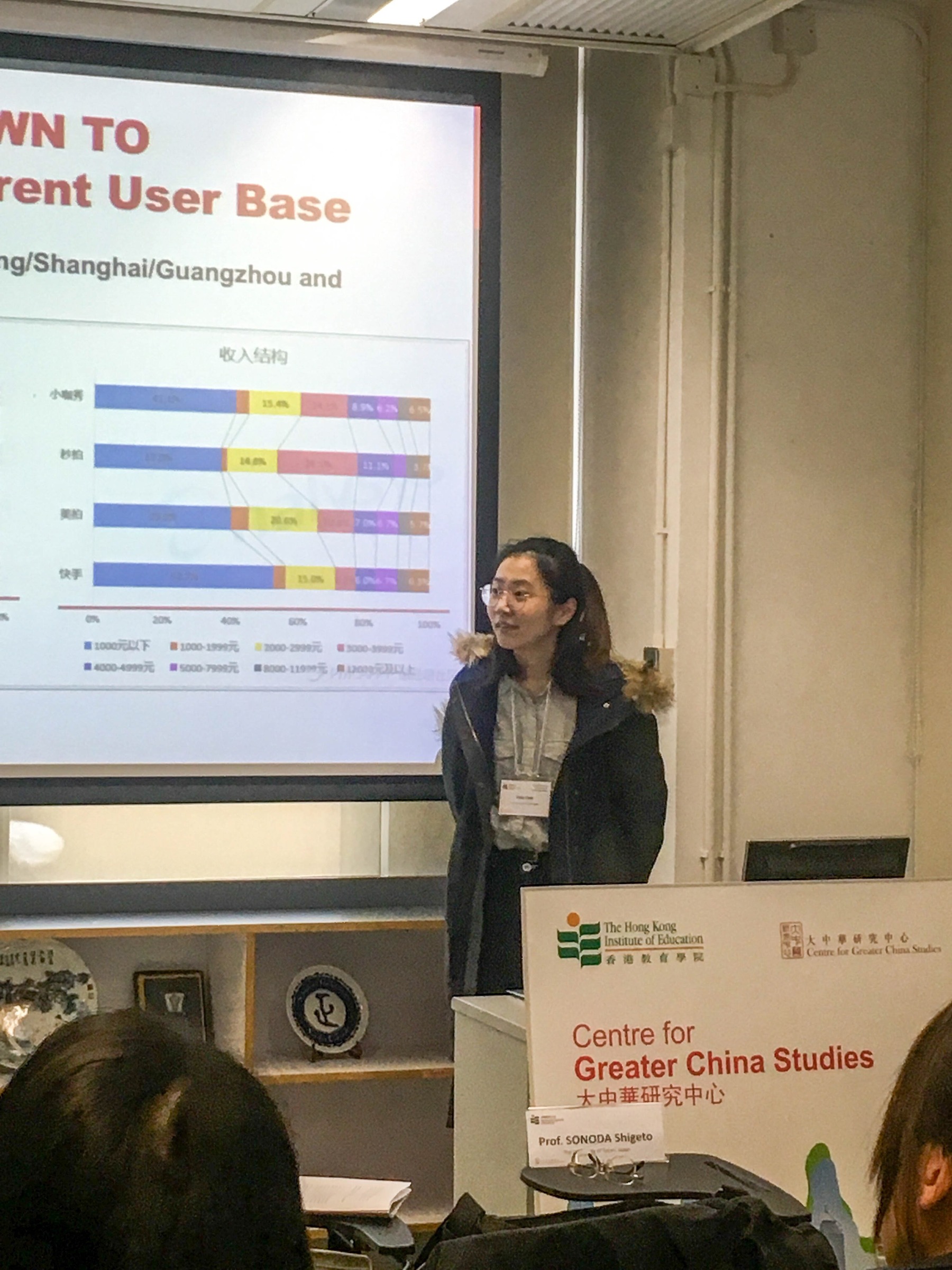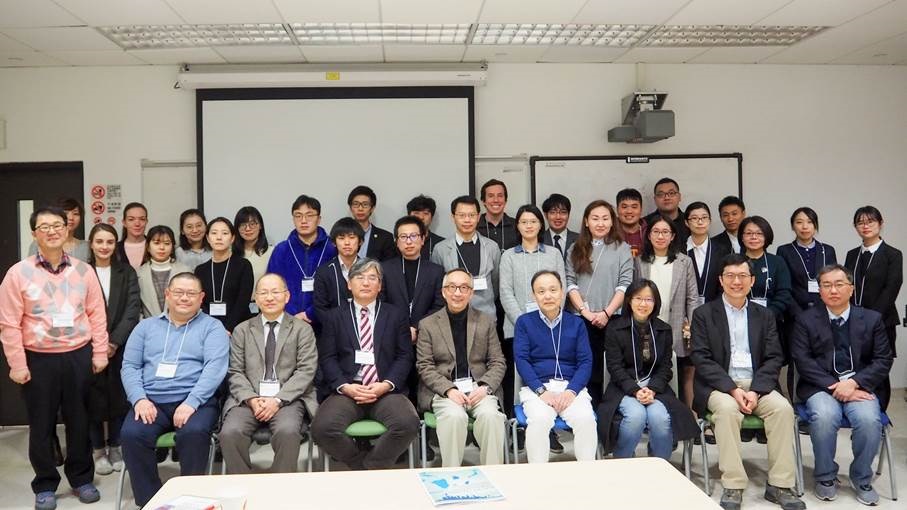
Report: The 4th East Asian Conference for Young Sociologists 2018 Jiaxi Hou
- Time and Date
- February 5 (Mon.) ~ 6 (Tue.), 2018
- Location
- The Education University of Hong Kong, Hong Kong
- Organized by
- The Educational Project 4 “Producing Multicultural Communities”, Integrated Human Sciences Program for Cultural Diversity, The University of Tokyo
The Fourth East Asian Conference for Young Sociologists was held at The Education University of Hong Kong this year in 2018. The conference provided a wonderful opportunity for young scholars from institutions of Taiwan, Japan, South Korea, and Hong Kong to gather together and share their different perspectives in conducting researches. I had attended the third conference last year and appreciated the precious occasion to not only receive feedback on my own study but also to learn from other scholars in different disciplines. The conference was organized into seven panels, respectively exploring topics of religion, labor market, cultural practices, mobility, social development, education, and sociological theories. Therefore, I was attracted to attend the conference again this year with a new on-going project.

My project concerns specifically with a video-sharing application Kwai, which is the first platform that is commonly accepted and welcomed among Chinese working-class youth. Being the most popular mobile application in China with over 400 million users, Kwai is particularly characterized by its user base who are mainly from the rural China and younger than 25 years old, with relatively low income and education background. On the other hand of its large user base, the platform is often criticized for its user-generated contents being vulgar in public sphere and serving as a biased representation of the contemporary Chinese working-class youths. Moreover, the platform responds to the criticism by claiming that its refined algorithm generates an accurate random sample of the structure of the general Chinese young population. Therefore, my study aims to investigate why young working-class is gathering on the platform Kwai, and how they represent themselves using the mobile application. Using a combined method of online ethnography and discourse analysis, the empirical findings of the study provide a chance to rethink the relationships among media technology, creative artwork, and users’ agency in the contemporary platformized Chinese online ecology of visual culture. By investigating a specific group of uploaders on Kwai, who come from or pretend to be originated from Northeastern China who are regarded as the most representative examples of uploaders on Kwai, I argue that even though the low-threshold media technology provides the opportunity for young working-class to express themselves, the existing framework for the representations of Northeasterners in public sphere, together with the platform’s algorithm aiming at gaining popularity, constrain their narratives in self-representation, which can in turn become a way of exclusion in the contemporary Chinese cyberspace. After presenting my own study, I had various chances not only on the panel but also during spare time to discuss it with professors and young scholars from other backgrounds. They provided me with meaningful questions and constructive suggestions for further developing my study into a more complete and better one.
Besides presenting my own study, I also attended the religion, mobility, education, as well as the final panel for rethinking sociological theories. In each panel, studies using various methods were presented to explore the panel topic from different perspectives, from which I not only learnt new knowledge but also rethought these conceptual issues. For example, in the religion panel, there were not only quantitative studies exploring individual’s subjective well-being, sense of xenophobia and their relations with religiosity, but also ethnographic studies about the pokkuri ritual behaviors in Japan’s super-aged society. In the mobility panel, different behaviors of crossing national or cultural borders under the influence of various motivations were discussed in varied social contexts. These behaviors included long-term transnational migrations to global cities, crossing borders between Mainland China and Hong Kong through education or in the name of child nurturing, as well as shorter experiences of transnational tourism. I indeed learnt a lot from other young scholars’ researches, for their empirical studies were inspiring for me to reflect on the conceptual frameworks of structure and agency. Moreover, the final panel of sociological theories conducted by Professor Sato from Tohoku University and Professor Lui from The Education University of Hong Kong served as a perfect conclusion to abstract our mind from the previous empirical findings to a higher level in rethinking social theory and historical sociology to investigate the contemporary world.
Finally, the conference served as a wonderful platform to not only share our own studies and learn from each other, but also to build the personal connections among young scholars who pay attention to different aspects of the contemporary Asian society. I am very appreciative to Professor Sonoda for not only providing me the chance to attend the conference, but also being my discussant during the panel. I am also very grateful to Professor Lui and the staff from The Education University of Hong Kong for organizing the conference awesomely. Last but not least, I would like to express my gratefulness to the IHS program and other participants of the conference, who worked together to make the conference a continuously wonderful learning experience for me.

report date : February 14, 2018
